第65章
"See how he loves his mother!" cried Vanda."Come and kiss me, my kitten.No, it is not your grandfather you are to thank, but monsieur, who is good enough to lend me one.I am to have it to-morrow.How are they made, monsieur?"Godefroid, at a sign from the old man, explained an accordion at length, while sipping the tea which Auguste brought him and which was in truth, exquisite.
About half-past ten o'clock he retired, weary of beholding the desperate struggle of the son and father, admiring their heroism, and the daily, hourly patience with which they played their double parts, each equally exhausting.
"Well," said Monsieur Bernard, who followed him home, "you now see, monsieur, the life I live.I am like a thief, on the watch all the time.A word, a gesture might kill my daughter; a mere gewgaw less than she is accustomed to seeing about her would reveal all to that mind that can penetrate everything.""Monsieur," replied Godefroid, "on Monday next Halpersohn shall pronounce upon your daughter.He has returned.I myself doubt the possibility of any science being able to revive that body.""Oh! I don't expect that," cried the father; "all I ask is that her life be made supportable.I felt sure, monsieur, of your sympathy, and I see that you have indeed comprehended everything--Ah! there's the attack coming on!" he exclaimed, as the sound of a cry came through the partition; "she went beyond her strength."Pressing Godefroid's hand, the old man hurriedly returned to his own rooms.
At eight o'clock the next morning Godefroid knocked at the door of the celebrated Polish doctor.He was shown by a footman to the first floor of a little house Godefroid had been examining while the porter was seeking and informing the footman.
Happily, Godefroid's early arrival saved him the annoyance of being kept waiting.He was, he supposed, the first comer.From a very plain and simple antechamber he passed into a large study, where he saw an old man in a dressing-gown smoking a long pipe.The dressing-gown, of black bombazine, shiny with use, dated from the period of the Polish emigration.
"What can I do for you?" said the Jewish doctor, "for I see you are not ill." And he fixed on his visitor a look which had the inquisitive, piercing expression of the eyes of a Polish Jew, eyes which seem to have ears of their own.
Halpersohn was, to Godefroid's great astonishment, a man of fifty-six years of age, with small bow-legs, and a broad, powerful chest and shoulders.There was something oriental about the man, and his face in its youth must have been very handsome.The nose was Hebraic, long and curved like a Damascus blade.The forehead, truly Polish, broad and noble, but creased like a bit of crumpled paper, resembled that given by the old Italian masters to Saint Joseph.The eyes, of a sea-green, and circled, like those of parrots, with a gray and wrinkled membrane, expressed slyness and avarice in an eminent degree.The mouth, gashed into the face like a wound, added to the already sinister expression of the countenance all the sarcasm of distrust.
That pale, thin face, for Halpersohn's whole person was remarkably thin, surmounted by ill-kept gray hair, ended in a long and very thick, black beard, slightly touched with white, which hid fully half the face, so that nothing was really seen of it but the forehead, nose, eyes, cheek-bones, and mouth.
This friend of the revolutionist Lelewel wore a black velvet cap which came to a point on the brow, and took a high light worthy of the touch of Rembrandt.
The question of the physician (who has since become so celebrated, as much for his genius as for his avarice) caused some surprise in Godefroid's mind, and he said to himself:--"I wonder if he takes me for a thief."
The answer to this mental question was on the doctor's table and fireplace.Godefroid thought he was the first to arrive; he was really the last.Preceding clients had left large offerings behind them;among them Godefroid noticed piles of twenty and forty-franc gold pieces and two notes of a thousand francs each.Could that be the product of one morning? He doubted it, and suspected the Pole of intentional trickery.Perhaps the grasping but infallible doctor took this method of showing his clients, mostly rich persons, that gold must be dropped into his pouch, and not buttons.
Moses Halpersohn was, undoubtedly, largely paid, for he cured, and he cured precisely those desperate diseases which science declares incurable.It is not known in Europe that the Slav races possess many secrets.They have a collection of sovereign remedies, the fruits of their connection with the Chinese, Persians, Cossacks, Turks, and Tartars.Certain peasant women in Poland, who pass for witches, cure insanity radically with the juice of herbs.A vast body of observation, not codified, exists in Poland on the effects of certain plants, and certain barks of trees reduced to powder, which are transmitted from father to son, and family to family, producing cures that are almost miraculous.